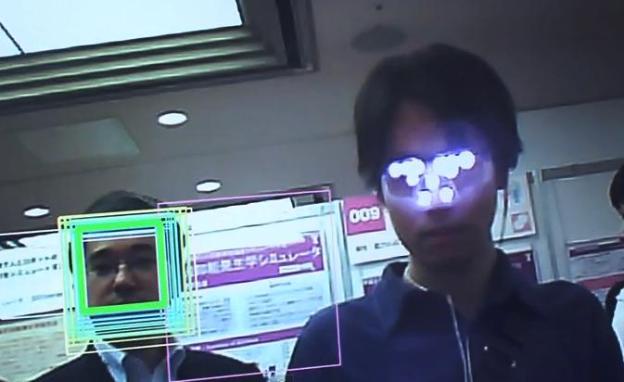 In an interview last month, the director of Google Glass’s product management team said that it wouldn’t be launching any face recognition services with its high-tech device “unless we have strong privacy protections in place”, meaning that at some point down the road, the Mountain View company could make it a significant part of Glass.
In an interview last month, the director of Google Glass’s product management team said that it wouldn’t be launching any face recognition services with its high-tech device “unless we have strong privacy protections in place”, meaning that at some point down the road, the Mountain View company could make it a significant part of Glass.
Privacy advocates worried about how such technology might be used with Google’s specs may be interested to learn that researchers at the National Institute of Informatics (NII) in Japan have found a way to prevent face recognition technology from working, and it doesn’t involve pulling a latex mask over your head.
The Tokyo-based team has developed a device – also a pair of specs – that prevents Glass or similar technology from recognizing a face. The specs are fitted with 11 near-infrared LEDs which shine a bright light, confusing cameras looking to locate a face.
“Light from these near infrared LEDs can’t be seen by the human eye, but when it passes through the camera’s imaging device, it appears bright,” explained NII associate professor Isao Echizen.
Understanding that the technology only works with cameras that are sensitive to infrared light, Echizen and his team are now experimenting with reflective materials in an attempt to produce the same result with other face-detecting cameras.
Whether the NII’s work one day results in the formation of two distinct spec-wearing camps – Glass and anti-Glass – remains to be seen, but anyone interested in Echizen’s tech should check out the video below.
As the commercial launch of Google Glass draws ever closer, discussions centering on privacy concerns have become more widespread, drawing the attention of many political bodies around the world.
Last month, a Congressional privacy group sent a letter to Google CEO Larry Page requesting information on privacy infringement issues regarding Glass. And just last week officials from six nations sent a joint letter to the Mountain View company setting down a series of questions they want answered about the head-based tech.
[via DigInfo]


